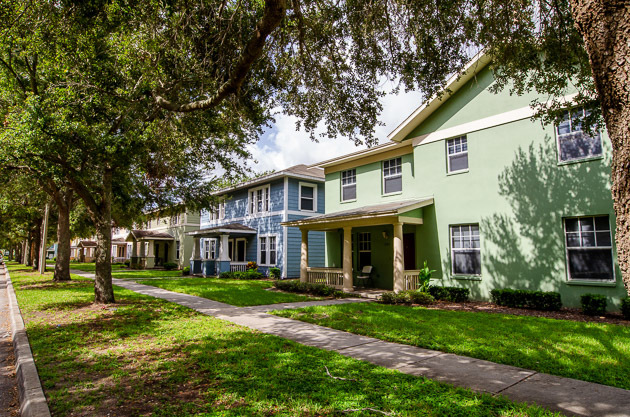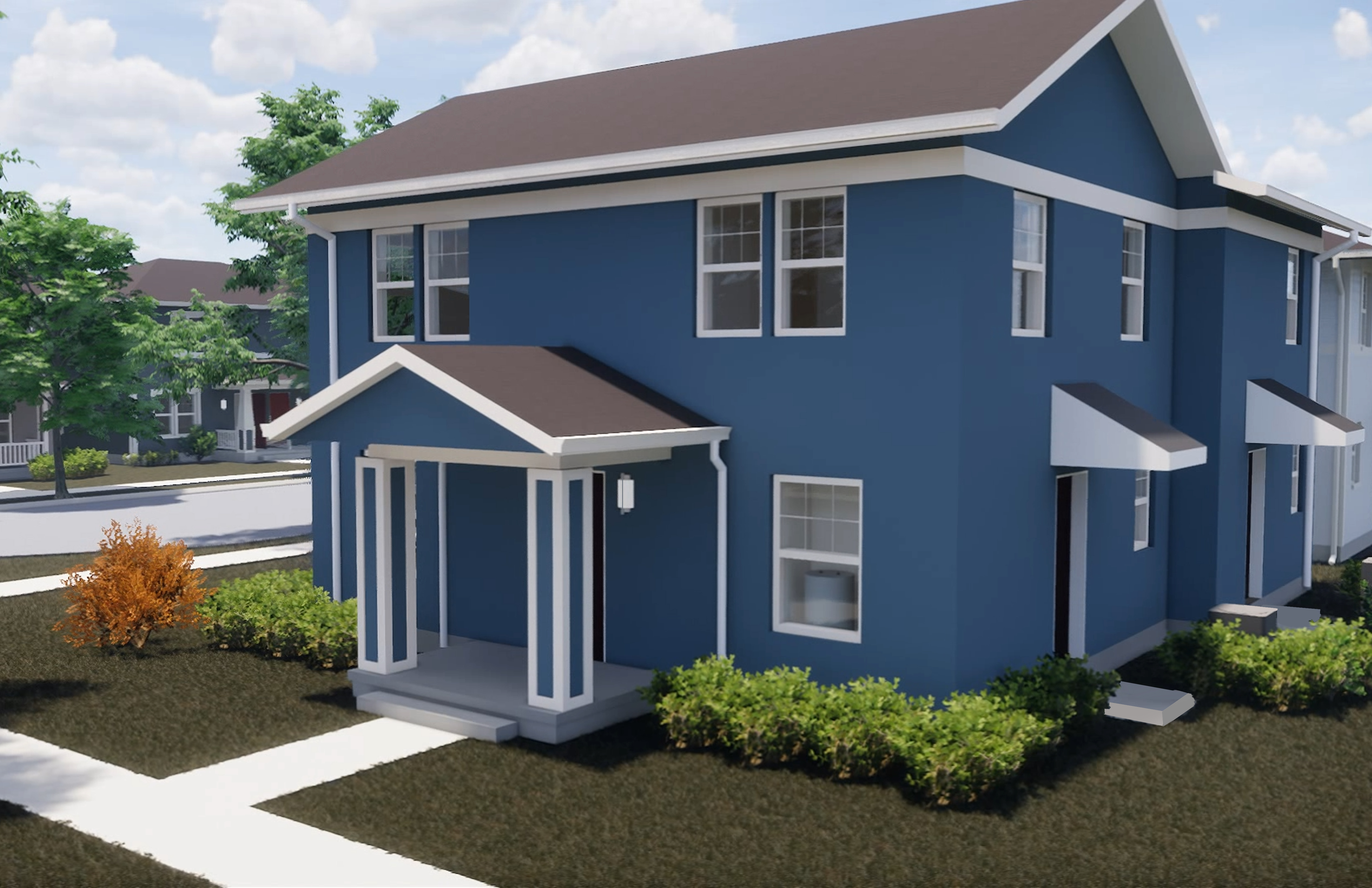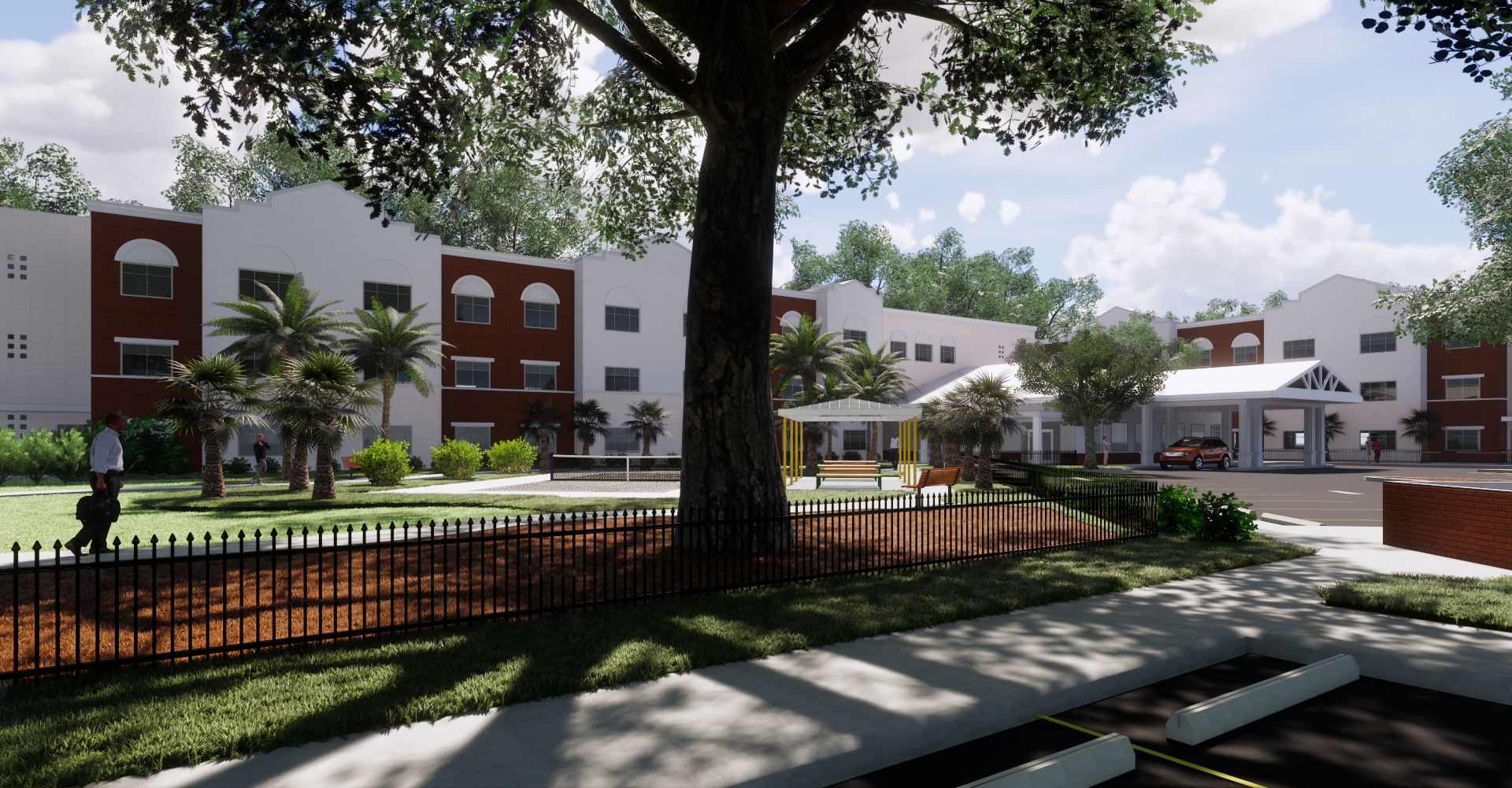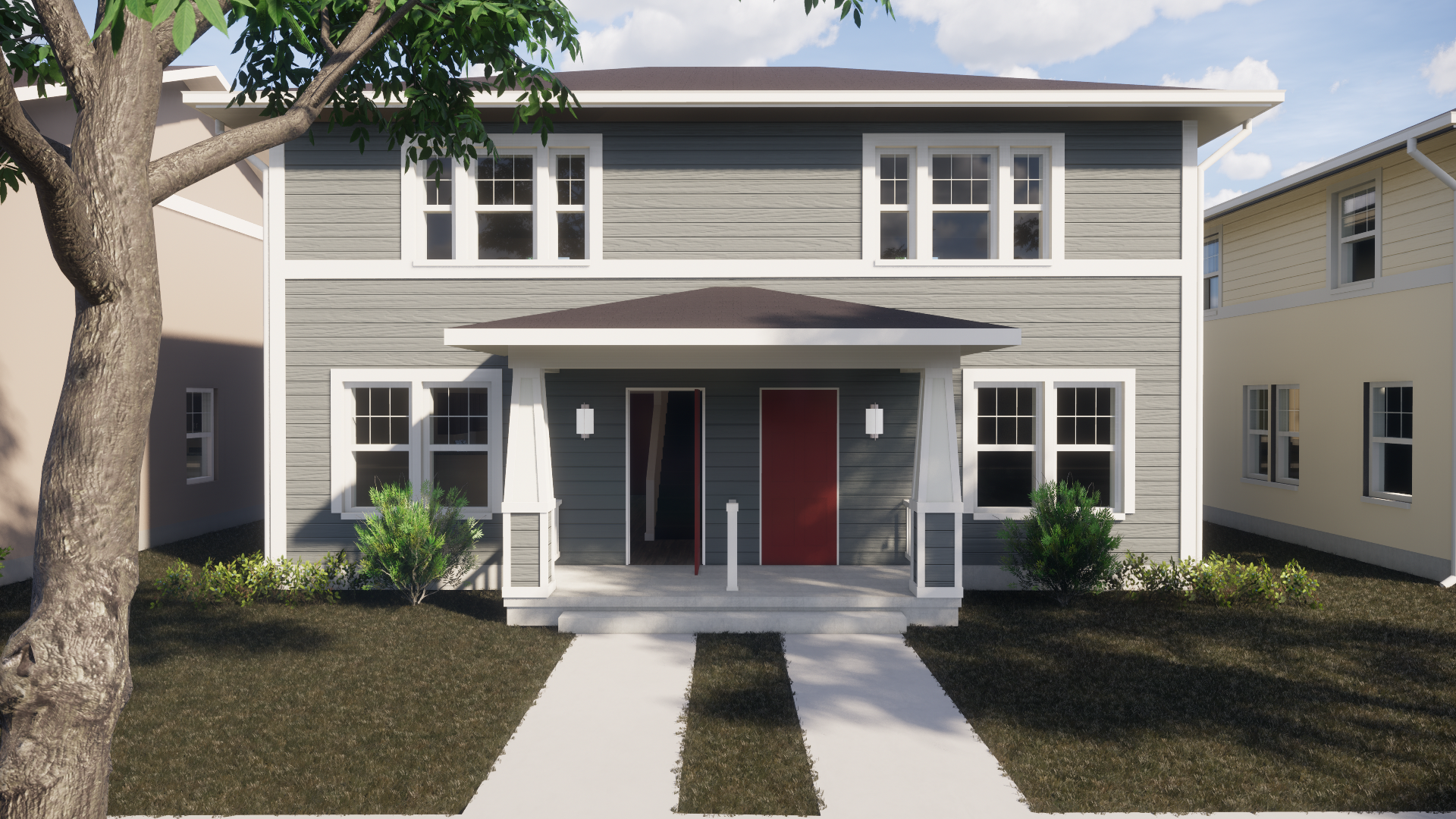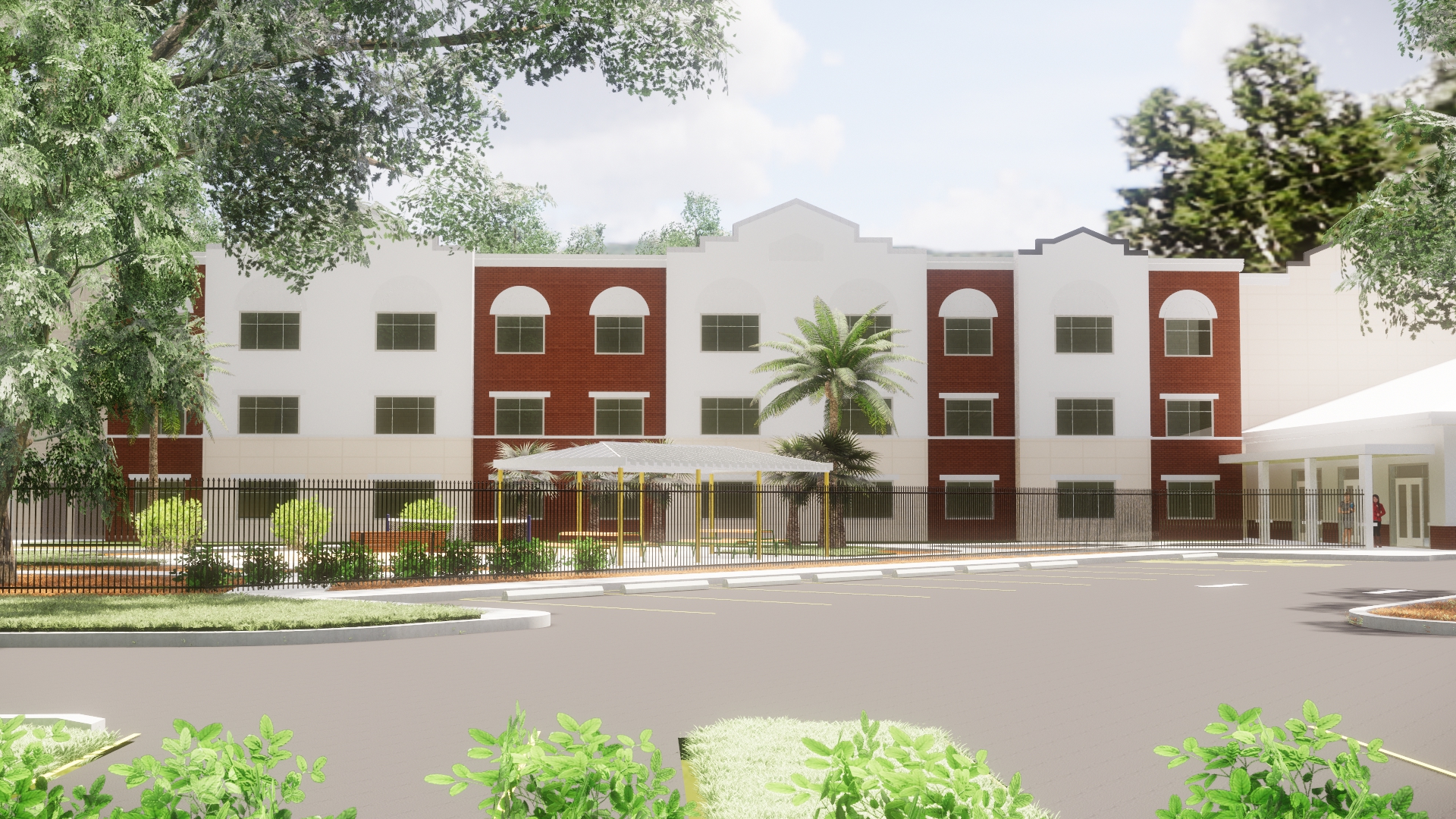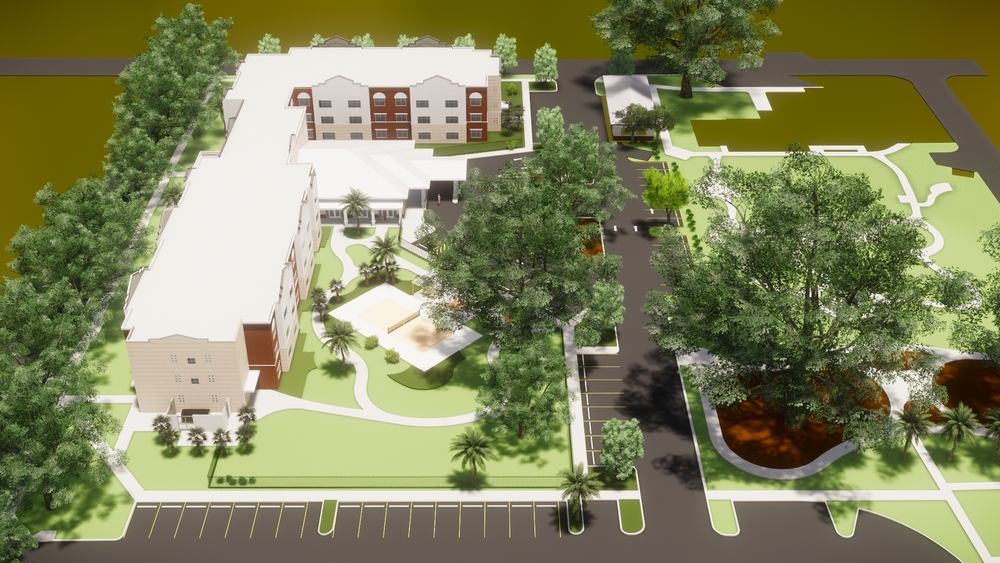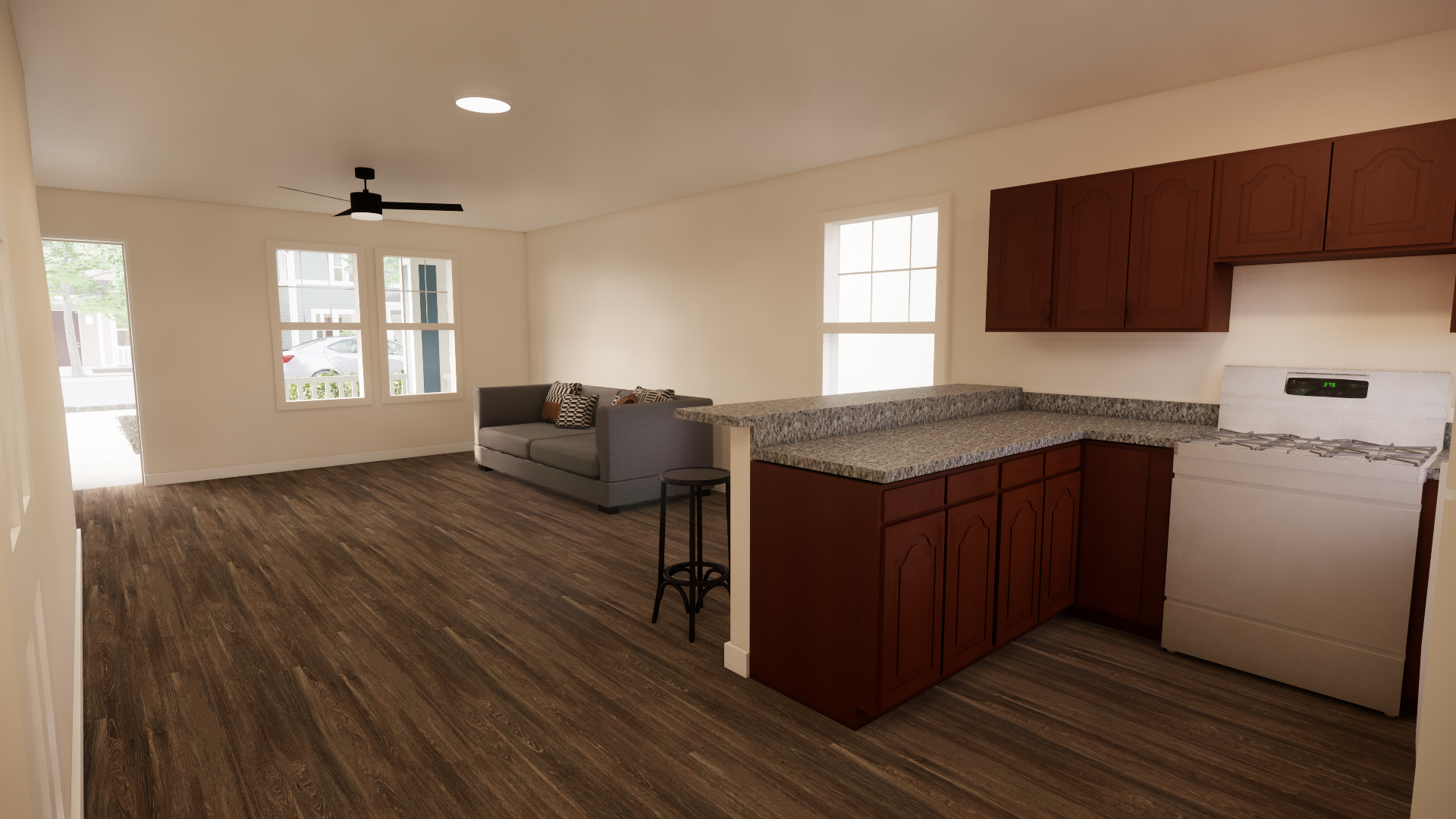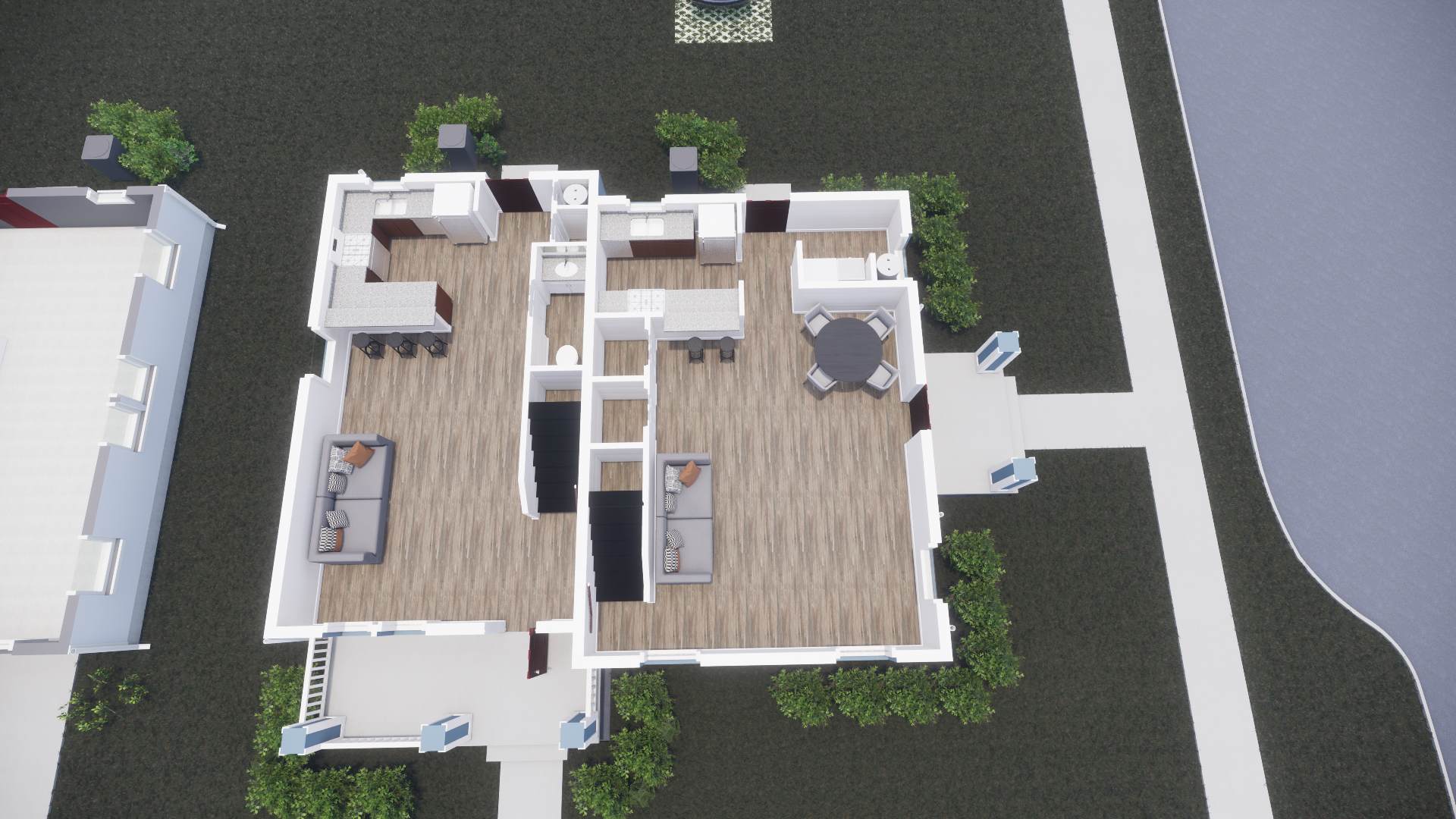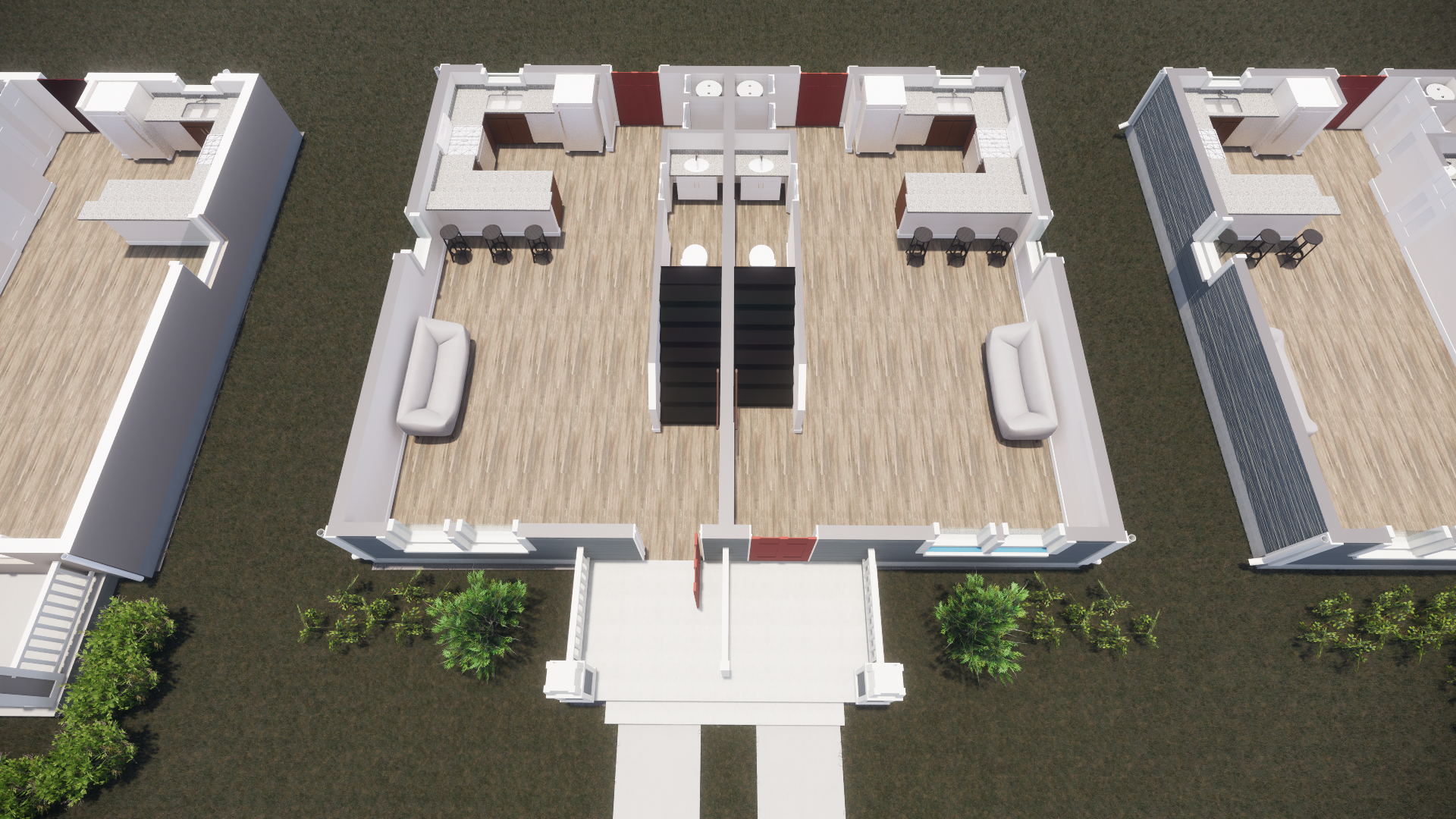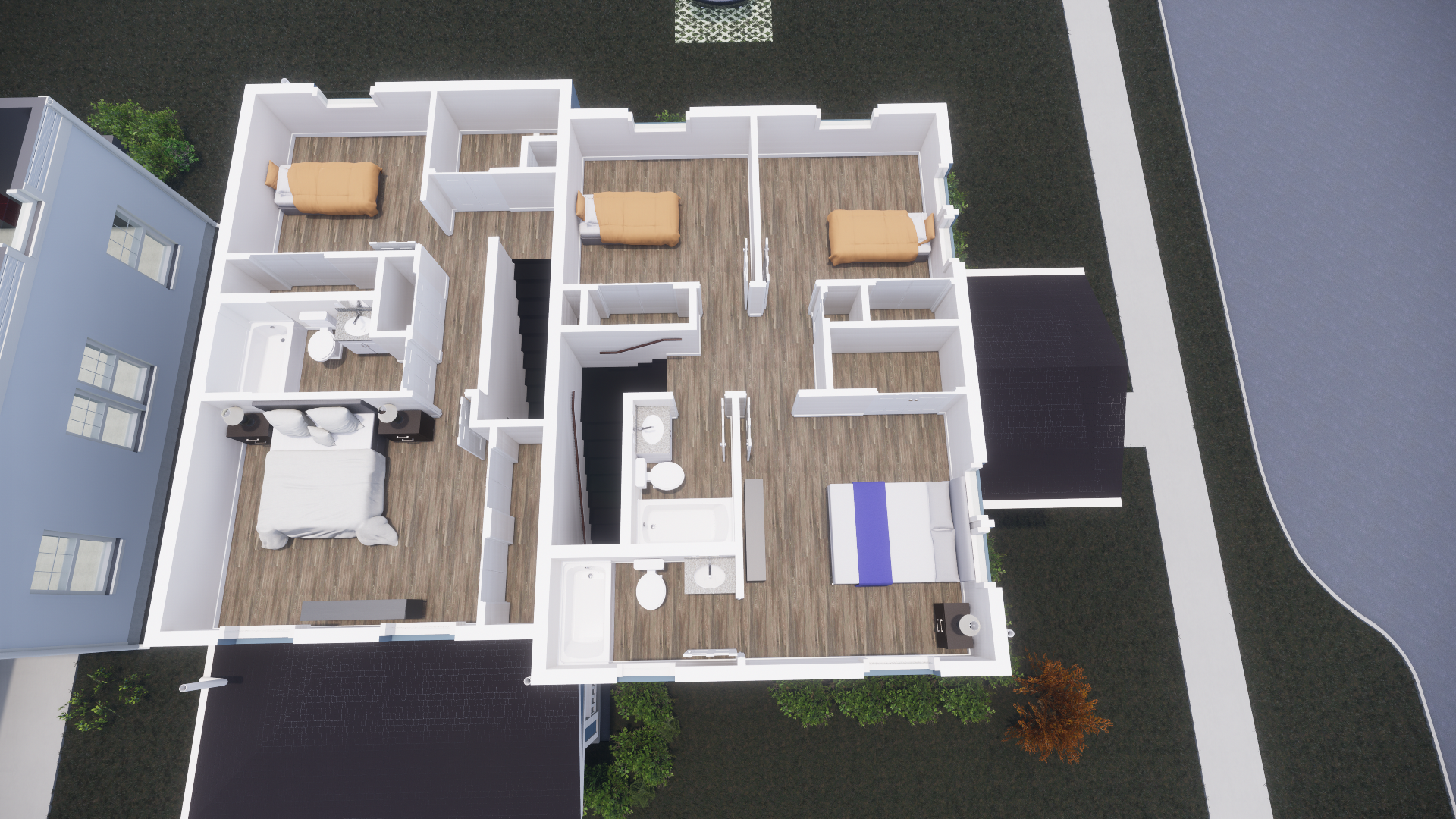ST. PETERSBURG, Fla. (WFLA) – After years of slow decline and months of waiting, the St. Petersburg Housing Authority has gotten approval from the U.S. Dept. of Housing and Urban Development to begin a $78 million redevelopment project at Jordan Park Apartments.
The oldest federal public housing project in Florida, Jordan Park was built in 1939, according to previous management company Landex. Residents include low-income families, veterans, the disabled and seniors in need of a place to live.
The residents of Jordan Park have their rent and utilities paid through public housing operating subsidies funded by taxpayer dollars.
Now that the project is moving forward, they’ll have to be relocated. Residents will be issued vouchers to be relocated instead.
Many residents “overwhelmingly wanted to take the voucher and leave,” according to Danielle Thomas, Chief Operating Officer for SPHA.
When organization staff told residents they would need to think about preparations and getting ready, once they receive the vouchers, they asked residents at the meeting if they were ready to move.
When it comes to housing and development, long-term survivability never has one key issue. Generally, it’s a slow build-up of small problems that become big over time, even when efforts are made to keep things clean and safe.
As homes funded by taxpayer dollars to house the country’s most vulnerable residents, Section 8 housing projects like Jordan Park sometimes switch management companies.
Not all of those companies end up being the right fit for the residents and their needs.
Jordan Park Apartments is no exception.
Jordan Park Apartments was rehabilitated about 20 years ago in a Hope VI project through a $13 million grant from HUD, along with an additional $11.5 million in private equity from selling low-income housing tax credits, and another $3.1 million in CDBG funds from the City of St. Petersburg, according to Landex.
The new redevelopment and rehabilitation project is expected to cost $78 million and be paid for through a combination of public and private funds, including bond revenues from Pinellas County, according to Thomas.
The Housing Finance Authority of Pinellas County gave preliminary approval for $38.8 million in bonds to be financed, after the county commission voted unanimously to approve it. The HFA now has to vote on it themselves to issue the bonds for the project to move forward.
Still, time tests stability, and the property began to decline.
Before SPHA took over Jordan Park’s management in 2016, at least two other companies controlled the housing facility.
HUD doctrine requires that low-income housing be affordable, decent, safe and sanitary, but over the years, issues continued to build up. In the mid-2010s, the residents of Jordan Park asked SPHA to take control of the property.
The property’s safety inspection records showed the state of the buildings before the project was started. A recent inspection report from February 2020 showed the property had scored a 42 out of a possible 100, showing multiple issues. A minimum passing score for a HUD property is a 60.
While the deficiencies in the report were corrected by SPHA and cleared by HUD in late-January 2021, the real trouble was how to take care of the aging property and ensure the residents have a decent, safe, and sanitary place to live.
Now that HUD has approved the project officially, SPHA can finally move forward on their plans to rebuild the property to more safely and healthily provide for their residents.
“We are excited to continue working with HUD on this long-awaited project and look forward to continue improving and providing the best quality housing to our current and future residents,” said Michael Lundy, SPHA Chief Executive Officer.
According to SPHA, 190 families currently live at Jordan Park Apartments. With HUD’s approval of the disposition application, SPHA will be able to apply for 51 Tenant Protection Vouchers, and also use vouchers from its current inventory to aid the families that stay.
How to adjust, improve, repair
RAD conversions are a voluntary program from HUD called Rental Assistance Demonstration.
According to HUD documents, “RAD seeks to preserve public housing by providing Public Housing Agencies (PHAs) with access to more stable funding to make needed improvements to properties.”
The Housing Authority took over the property in 2016 and a RAD conversion was proposed to fix up the housing facility and change how it was managed to be a project-based housing unit.
HUD says that in public housing units across the U.S., there are more than $26 billion of repairs needed, called capital costs. The RAD program is a way for public housing associations, or PHAs, to rehabilitate or repair units without needing money from Congress.
A change in leadership at SPHA in 2019 stalled plans to redevelop the property. During the COVID-19 pandemic, new leadership came to SPHA when Lundy was hired as the organization’s new CEO. His first project in the position was the redevelopment of Jordan Park.
“This is another big step forward for not only Jordan Park, but the St. Petersburg Housing Authority as a whole. Thanks to Mr. Lundy and all the hardworking staff, we have been able to effectively and efficiently get this highly anticipated redevelopment project moving in the right direction,” said Commissioner James Dates, Chair of the SPHA Board of Commissioners.
The new Jordan Park Apartments
For the 587 current residents of Jordan Park, the rehabilitation is expected to be a long process, conducted in two phases.
In Phase I, construction would start in the middle to end of June. This is when the construction company working with SPHA, Norstar Development USA, would begin building the senior midrise.
Construction of the midrise is expected to take a year, according to Thomas.
The new Jordan Park Apartments would have 266 units, according to documents filed by Jordan Park, LLC with the Florida Housing Finance Corporation in 2019.
Improving more than structure
Still, even fixing the physical structures to help residents isn’t always the only need. A lot of times, people need more help than a roof over their head and running water. Those are basic necessities for survival, but not the only secret to living a better life or getting back on your feet.
SPHA received a Resident Opportunity and Self-Sufficiency grant from HUD for $186,850 in April 2021 to fund a special caseworker to help residents at the property over the next three years. The grant takes effect on June 1 through May 31, 2024, providing case management and support services to Jordan Park.
The ROSS grant in 2021 was the first time the SPHA had received one, but the organization says that they are positioned to receive additional funding if they comply with the terms of the grant.
SPHA officials say the first coordinator covered by the grant will begin working with residents on June 8, and that the organization expects to have two more hires begin later this month.
Helping the residents with services is a big step toward providing for the tenants, but another problem with improving life at the property was how to fund the necessary repairs.
In a petition filed for Jordan Park, LLC, the company requested approval for $27.4 million in multifamily mortgage revenue notes (MMRN), and $1,530,385 in non-competitive 4% housing credits to fund the purchase and rehabilitation of Jordan Park.
Due to the organizational changes resulting in an updated staff for SPHA, a petition for a waiver was submitted to the Florida Housing Finance Corporation to seek approval for the bonds.
The MMRN comes from Florida’s Multifamily Mortgage Revenue Bond program, which uses taxable and tax-exempt bonds to provide below market-rate loans for non-profits and for-profit developers to set aside a percentage of apartment units for low-income families.
The Florida Housing Finance Corporation says that, typically, affordable housing developers that submit applications to the MMRB program are involved in constructing or acquiring properties with 200 units or more.
The plan to rebuild, relocate, rehabilitate
Due to the change in leadership, the RAD application was withdrawn and a new plan started to form within SPHA to take care of the property for current and future residents.
A strategic plan was sent to the SPHA Board in November 2020 and received approval. The proposed project would renovate the property’s currently used 206 multifamily units, and add an additional 60 units in a new senior midrise building on site.
To make this happen, SPHA had to file what’s called a Section 18 demolition or disposition application. This is a process with HUD that organizations and property managers submit requesting approval from the federal agency to either demolish the property, or “dispose” of it.
“A Section 18 disposition requires the PHA to transfer property to a separate legal entity. PHAs have local discretion in who they transfer to and how they structure the transfer…A PHA may retain fee title and transfer through a long-term ground lease,” according to HUD.
The organization, or entity, that receives the transferred property can be either wholly or independently controlled by the public housing agency, such as a non-profit or single-asset limited liability company.
SPHA filings with HUD from 2017 show that this was not the first time a disposition had been requested and approved. In 2017, 31 units were approved for disposition.
The new application for disposition was submitted in February to the HUD field office in Miami. The application was approved on May 27, 2021 according to an SPHA spokesperson. The “extensive renovation” project will be conducted in two phases.
To make this happen, residents will have to be relocated during construction. The residents will be able to move either within St. Petersburg, or to new cities, through the use of a different type of voucher to cover expenses.
For the residents to move, they would need to have what’s called a housing choice voucher, that would differ from those currently used at the facility, allowing their assistance to travel with them, rather than stay on-location at Jordan Park.
To facilitate the relocation process, SPHA hired what they call a relocation social worker to work with Jordan Park residents and help them move. A van was also purchased to help with relocation, and SPHA is working to procure an 11-passenger van with wheelchair accommodations.
According to Thomas, relocation will start 90 days after approval.
Staff walked them through the relocation process, mainly going over the steps to get out of Jordan Park and move somewhere else. Residents will have to submit applications to other properties in order to relocate, but the costs will be covered by SPHA, at least in part.
SPHA will pay for relocation expenses like application fees, security deposits, and utility reconnection fees, as well as some moving costs. Residents will be able to get a maximum of $300 in application fees covered, in addition to a security deposit up to a full month’s rent.
If residents choose to have a moving company help them, SPHA will either reimburse residents for the costs, or pay the vendors directly, based on preference.
SPHA will also assist in the move themselves, if residents request it, with the services performed by a professional moving company that will include loading, moving, and unloading services. This includes a $100 allowance for contracted movers. SPHA will provide the packing supplies once a move has been scheduled.
On June 2, SPHA met with residents in-person and virtually to talk about the changes coming to the property. The meeting was recorded and made public, for residents who could not make the meeting to get the same information on the redevelopment plans.
Included in materials published by SPHA was a map of the facility color-coded to show which portions would be renovated in which phase, to assist residents in planning for the relocation and renovation process.
The renovation project will also include improvements to the property, as well as an expanded scope of rehabilitation, according to a statement from SPHA on March 25, 2021.
The construction plans now include public balconies for the senior mid-rise, as well as additional parking spaces, washers and dryers, and canopies above the rear entry door at Jordan Park. The added construction reportedly increased the overall budget by 6 percent, or $216,000.
Response to the rehabilitation
The response from residents in the early planning of the project, when SPHA began informing them that the rehabilitation was moving forward, was largely positive according to Thomas, and as seen in the recorded June 2 meeting.
Residents said they had “been ready for” the vouchers, excited to relocate.
The immediate response from residents was “Yes.” Some residents said they would even begin searching for new places to live “tomorrow” once applications opened.
Thomas says now that the project has been approved, it signals “a new chapter for Jordan Park.”


